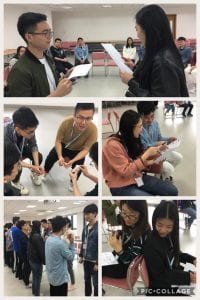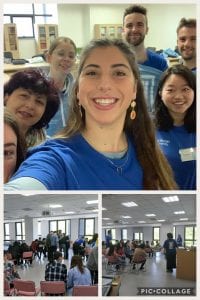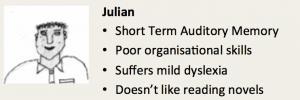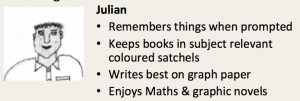Our students here at SEU/Monash have completed the first seven workshops, beginning with simple concepts such as appropriate greetings, addressing different people, conversation patterns, interjections, and body language and are now moving into more complex areas. Tuesday’s workshops, for example, were all about “Voicing your opinion” in the context of an academic English university classroom.

Suzhou Conversations
In a university environment, where classes are held in English, tutors expect their students to be active learners. One way this is evident is through discussion and voicing opinions about the learning. It is through such activities that tutors get a sense of how students are engaging with the material and how they can critically analyse and formulate opinions about the different concepts and ideas presented.
In our workshops, students were asked to voice their opinions on various scenarios associated with university learning. One such scenario included enforcement of a new rule where homework, assignments and theses would now have to be handwritten to ensure students were completing all their own work. This proclamation was met with surprise, disbelief and awkward shifting in their chairs. In their groups, the students had to formulate arguments for and against the concept and convince others that it was either a good idea or that it needed reviewing. I thought I’d share some of the arguments they wrote down.
Reasons for disagreeing
It’s a waste of time
Waste of paper
Difficult to check spelling mistakes.
Handwriting is not formal.
Unconvenient [sic] for teachers to review and check repeatation [sic].
People can copy the homework by hand also.
Pay more attention on the handwriting rather than content.
Inconvenient to submit your homework by email.
Teachers have difficulty recognizing some hand-writing.
Typewriter will be useless.
Change easily.
Reasons for agreeing
Handwritten show the devotion.
Improve handwriting skills.
Convenient to write some math formulas.
If we forget to save the document, we will lose it.
Improve understanding.
Can’t copy and paste.
Can record our thinking/ideas easily.
Be more sincere.
Good for eyes.
My favourite response was this: Handwriting would mean we have more time to think about it, our attention will be focused. If we write more, we will write more beautiful English.
For me, this is what learning is about. Thinking, feeling, seeing, doing, and most importantly loving it.
Thanks for reading 🙂







